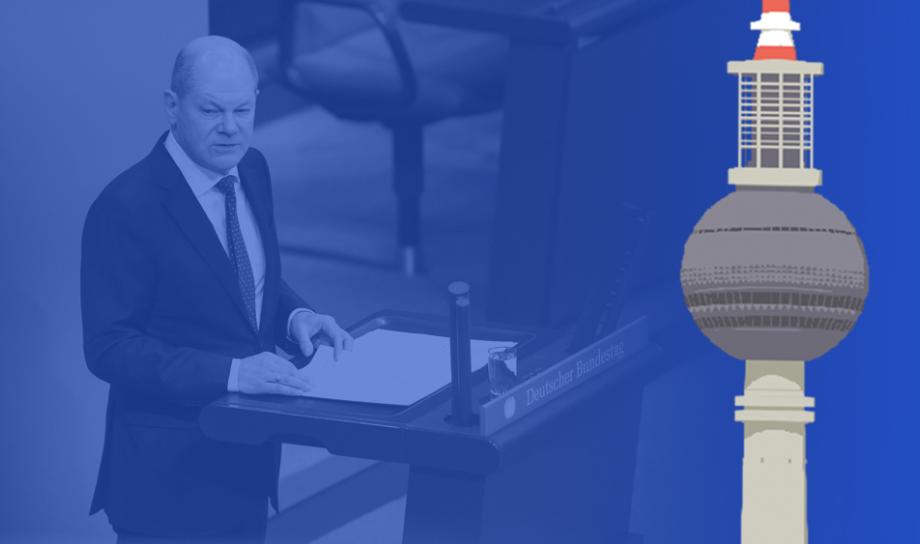© REUTERS/Liesa Johannssen Germany, or at least its shaky coalition government, is on the brink, or so current headlines suggest after “Karlsruhe,” shorthand for the country’s powerful Constitutional Court (and the name of the south-western town where the court is located), has spoken and declared Germany’s current budget unlawful. The world has been scratching its head—half disbelievingly, half gleefully (particularly in the case of European countries hard-hit by the financial and eurozone crises of the 2010s and subjected to German lectures on financial rectitude)—how Europe biggest economy, and the third largest worldwide, could have gotten itself into such a mess. The short answer is: Germany’s “debt brake,” or “ Schuldenbremse .” The provision that government has to restrict new borrowing to 0.35 percent of GDP, enshrined in the constitution under Chancellor Angela Merkel in 2009, brought down German government debt from 82.5 percent of GDP in 2010 to just below 60 percent by 2019. But it has also meant that Germany has shied away, during the “oh-so-good” Merkel years when money was very cheap indeed, from urgently needed public investments: in its dilapidated armed forces, the Bundeswehr, thus regularly missing the agreed NATO goal of spending 2 percent of GDP by a mile and undermining European security, but also in infrastructure, schools, digitalization, and much more besides. The “debt brake” was suspended, as the constitution allows in cases of an “emergency” (“ Notlage ”), during the COVID-19 pandemic and the first year of Russia’s brutal war of aggression against Ukraine, when Germany’s huge dependence of Russian gas threatened to choke the economy and turn out the lights, or at least the heating, in parts of continent’s most prosperous country. It then came back into force in 2023. But with an eye on the “debt brake’s” likely return, Scholz, first […]
Click here to visit source. Germany’s “Plumbers of Power” Lack Far-Sightedness
